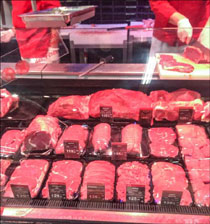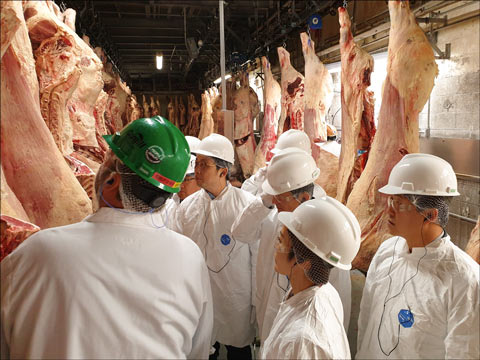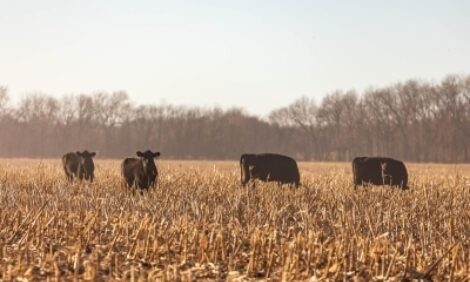



Trade spat between China and Australia intensifies
China suspends beef imports from four Australian firms amid official disputes over the coronavirus pandemic.Reuters reports that China has halted imports from four of Australia’s largest meat processors. Trade of several key agricultural commodities are also suffering as commercial ties sour due to disputes over COVID-19.
China announced the suspension after Australia called for an independent inquiry into the origins of the novel coronavirus last month. The move also comes days after China proposed introducing an 80 percent tariff on barley shipments.

"Some politicians in Australia say too much, they need to stop this rhetoric with China, especially criticism and speculation regarding the origin of the COVID 19 virus," said Sam McNiven, founder at Australian beef producer Providore Global exporting to China via a vertically integrated farm-to-table business model. McNiven added that Australia should support its major trade partner China.
Trade Minister Simon Birmingham described the import suspension as "disappointing", but denied it was retribution by China over Australia's desire for a coronavirus inquiry.
China is resistant to an independent inquiry. In late April, Beijing's ambassador to Australia, Cheng Jingye, said Chinese consumers could shun Australian goods in response to Canberra's support for such an investigation.
Minister Birmingham said Kilcoy Pastoral Company, JBS's Beef City and Dinmore plants, and the Northern Cooperative Meat Company have been banned from exporting beef to China due to issues with labelling and health certificates.
Chinese foreign ministry spokesman Zhao Lijian told reporters that China's customs agency "continuously" found instances of the Australian companies having violated inspection and quarantine requirements and suspended the imports to "ensure the safety and health of Chinese consumers".
"(China's customs) notified the relevant Australian departments and required them to investigate completely the reason for the problem and to fix it," Zhao said during a daily briefing in Beijing.
He added that the suspension was unrelated to the bilateral dispute over COVID-19.
Labelling issues were also cited by Beijing when the same companies and two others lost their licences to ship beef to China in 2017 for several months.

"Thousands of jobs relate to these meat processing facilities. Many more farmers rely upon them in terms of selling cattle into those facilities," Birmingham told reporters in Canberra.
Australian Meat Industry Council Chief Executive Patrick Hutchinson said the companies made up approximately 20 percent of Australian beef exports to China.
Australian meat exporters were aware of Chinese labelling requirements, Hutchinson said.
"Sometimes their tolerance levels go up and down. This time we have a situation where the tolerance is quite low for this issue".
Trade realities hit home
Australia’s beef exports to China are worth more than A$3 billion and were surging before the novel coronavirus pandemic. Increased demand for Australian beef in 2019 was fuelled by the ongoing African swine fever outbreak that decimated China’s pig herd. Due to contracting availability of pork, many Chinese consumers switched to eating beef. The sector was also benefitting from beef demand from China’s growing middle class.
China is by far Australia's largest trading partner, taking around 38 percent of all exports in 2019, and the growing spat weighed on the Australian dollar on Tuesday.
"First barley now beef," said Stephen Innes, Chief Global Market Strategist at AxiCorp. "The Aussie has been under pressure most of the day due to tariff issues with China."
Australia was China's third largest beef supplier in 2019, after Brazil and Argentina. China's beef imports surged in the first quarter of 2020, despite a sharp slowdown in demand as consumers stay away from restaurants following the coronavirus outbreak.
"The impact on China is very small," said a Chinese beef buyer with a state-owned trading firm.
"There are a lot of other countries exporting to China. There are no products (from Australia) that cannot be replaced."
"There's too much beef around and prices are weak," said the importer.
Read more about this story here.


